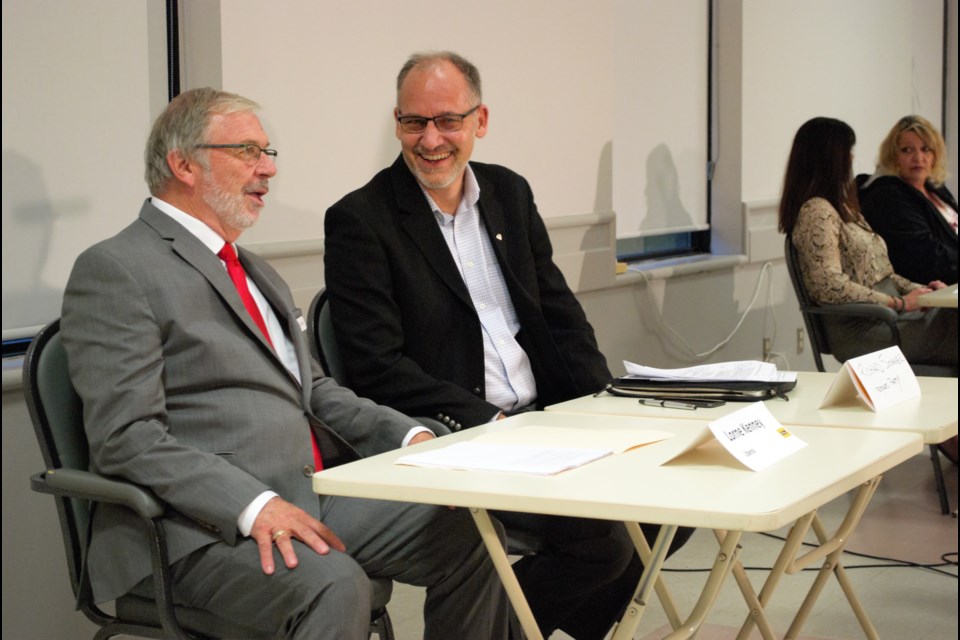Some Simcoe-Grey candidates participated in the 100 Debates on the Environment event on Thursday night, in spite of only three of the four who showed up believing in the climate crisis being man-made.
Collingwood’s iteration – one of 105 nationally – took place at the Leisure Time Club, and was moderated by Penny Skelton of RogersTV.
“We challenge the idea that there is scientific consensus, and I know that’s not popular with a lot of people,” said People’s Party of Canada candidate Richard Sommer. “We do not deny that the climate has changed. What we challenge is, is it anthropogenic?”
Also in attendance at the debate were Liberal candidate Lorne Kenney, Green Party candidate Sherri Jackson and NDP candidate Ilona Matthews. Absent from the debate was Conservative candidate Terry Dowdall. Candidates were each given 90 seconds to answer posed questions, and were given an opportunity to rebut the others’ answers on four nationally asked questions.
In regards to a question about what the federal government can do to reduce water pollution and flood events, Jackson brought forward the idea of a multi-government-level council.
“We need to actively legislate against corporations who aim to jeopardize our water supply,” said Jackson. “We will create a council of Canadian governments with federal, provincial, municipal and indigenous representatives for high-priority policy making. This council will create a national water strategy. We will climate-proof our water and wastewater systems. We will increase green infrastructure by protecting our watershed and our wetlands.”
When it came time for a rebuttal, Jackson questioned Kenney’s assertion that the Liberals started a program to make sure every First Nation’s community has safe drinking water by 2021.
“I don’t think it’s acceptable for our indigenous people to have to wait another year or two years to get clean drinking water,” said Jackson. “I believe they have waited for hundreds of years for us to treat them with the respect they deserve.”
When asked a question about protecting the quantity and quality of wilderness in Canada, Kenney reminded attendees that the Liberal Party has made the largest investment in nature conservation in Canadian history.
“Under a Liberal government, we’ve gone from protecting less than one per cent of our oceans in 2015, to just under 15 per cent. We’re well-ahead of a commitment made by the Harper government, under which nothing was done,” said Kenney.
When asked a question about pollution and toxic substances, Matthews talked about how far the NDP would go to inform the consumer on what chemicals they’re coming in contact with.
“I would change food labelling to include all ingredients no matter how small the percentage, including genetically modified ingredients,” she said. “We’ll just ban anything that’s harmful to animals, to the environment, to the forests... everywhere.”
When it came time to conclude for the evening, Kenney used an allegory for the climate crisis to sum up the options for voters primarily interested in environmental issues.
“There’s a fire,” he said. “We’re there fighting the fire right now and we have been for the last four years. There are two other fire trucks that are here tonight, ready to go. There’s a Conservative truck – a gasoline truck – that’s also ready to go.”
The election is being held Oct. 21.




